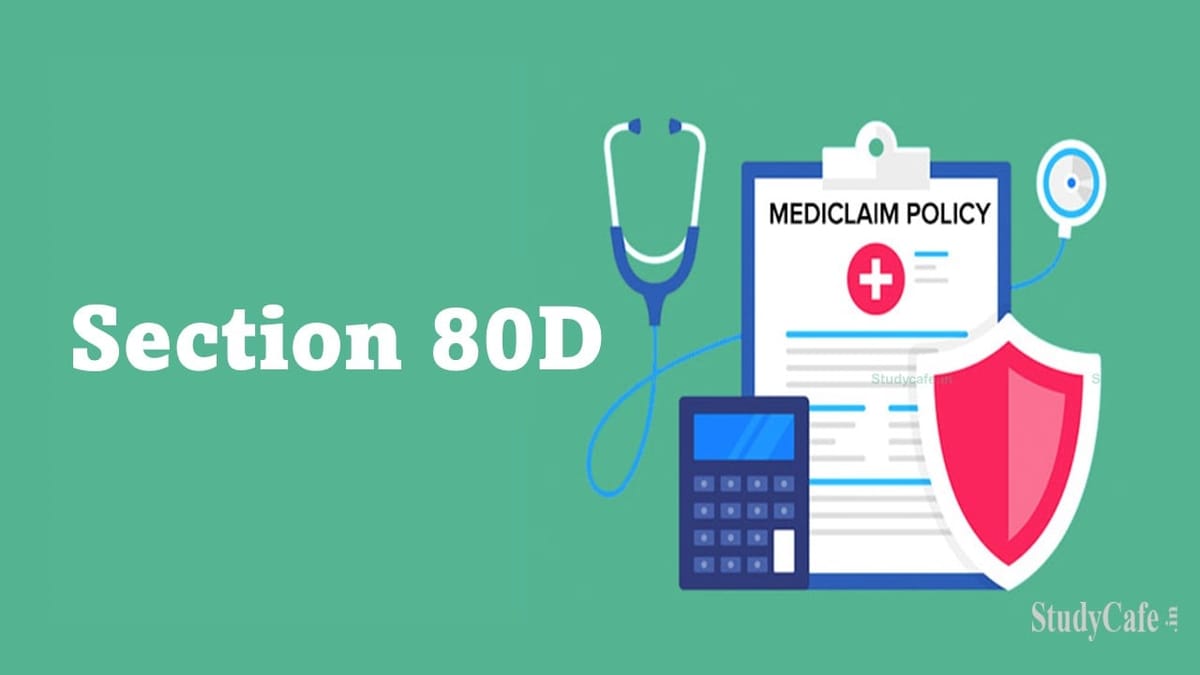Section 80D- Meaning, Eligibility & Applicability
Deepshikha | Dec 20, 2021 |

Section 80D- Meaning, Eligibility & Applicability
We are often caught off guard when it comes to medical emergencies. It is always preferable to be safe than sorry, and medical insurance is no exception.
In India, the majority of the people do not have health insurance and must rely on their savings or borrowing in the event of a medical emergency. Medical insurance is a must-have in your financial portfolio, as the government encourages everyone to acquire it and provides tax benefits under Section 80D.
Section 80D allows any individual or HUF to deduct medical insurance premiums paid in any given year from their total income. Top-up health insurance and critical sickness plans are also eligible for this deduction.
The advantage is accessible not just for purchasing health insurance coverage for yourself, but also for purchasing a policy to cover your spouse, dependent children, or parents.
The nicest aspect is that it goes above and beyond the Section 80C deductions.
Individuals and HUF taxpayers are the only ones who can deduct medical insurance premiums and medical expenses for older persons.
Individual or HUF taxpayers, insurance can be availed for:
This deduction is not available to any other entity. A company or a firm, for example, cannot claim a deduction under this clause.
For the payments listed below, an individual or HUF can claim a deduction under Section 80D:
As seen below, the maximum deduction permitted varies depending on the scenario:
Individual health insurance and family floater plans are eligible for tax deductions. Premiums paid for health insurance for yourself, your spouse, your dependent children, and/or your dependent parents are deductible.
Unemployed male children under the age of 25 or unmarried female children under the age of 25 are both eligible dependent children.
Premiums paid for siblings’ health insurance are not eligible for a tax deduction. Pemium payments can be made online or offline, except cash. Debit cards, credit cards, and net banking are all acceptable online payment methods.
In 2013-14, the government implemented a preventative health checkup deduction to encourage citizens to be more health-conscious. The goal of preventative health checkups is to detect any sickness and decrease risk factors early on by seeing a doctor regularly.
Payments for preventative health check-ups are deducted at a rate of Rs 5,000 under Section 80D. This deduction will be limited to Rs 25,000/Rs 50,000, depending on the situation.
Individuals can claim this deduction for themselves, their spouses, their dependent children, or their parents. Cash can be used to pay for preventive health screenings.
In case of any Doubt regarding Membership you can mail us at [email protected]
Join Studycafe's WhatsApp Group or Telegram Channel for Latest Updates on Government Job, Sarkari Naukri, Private Jobs, Income Tax, GST, Companies Act, Judgements and CA, CS, ICWA, and MUCH MORE!"